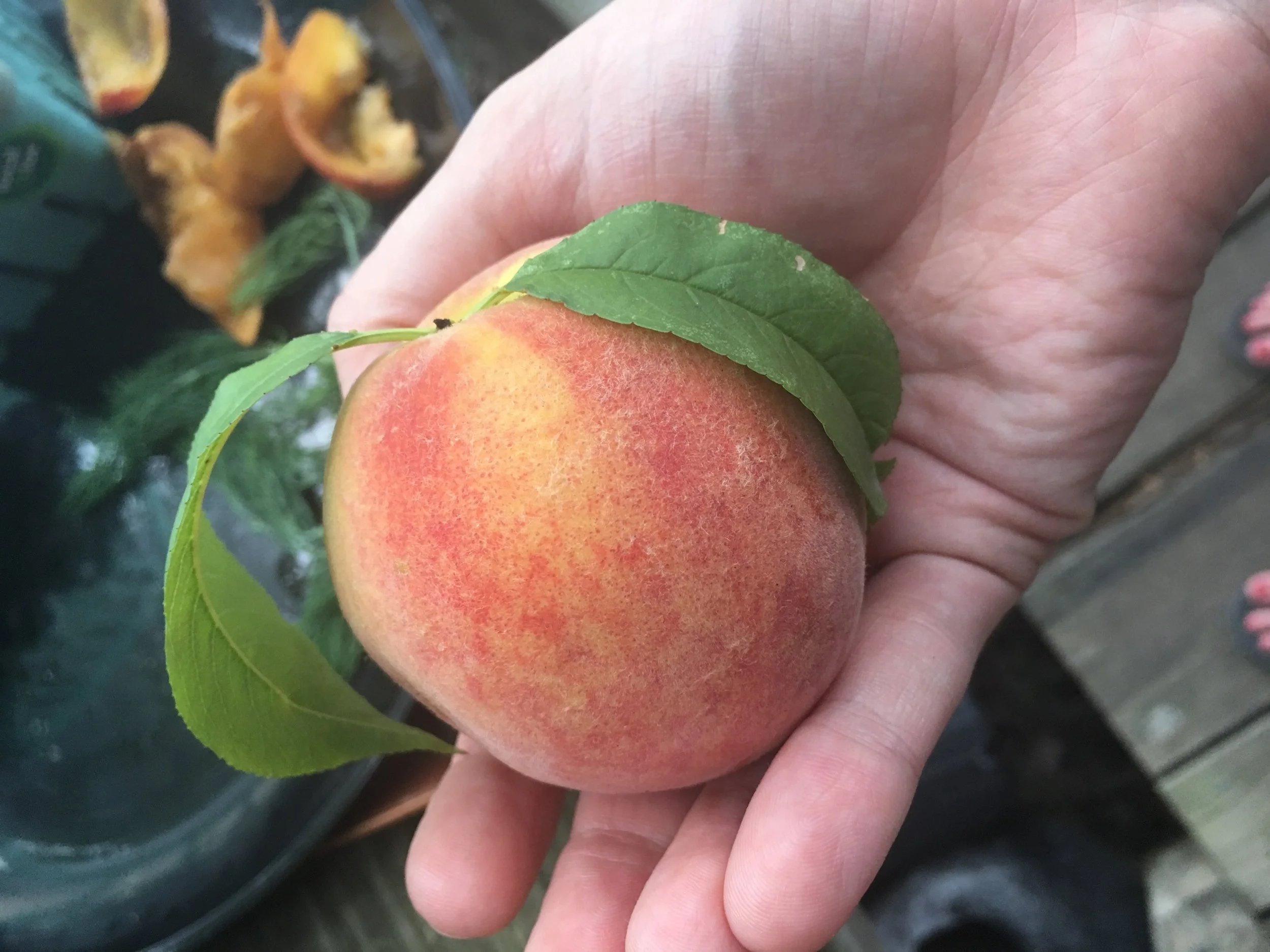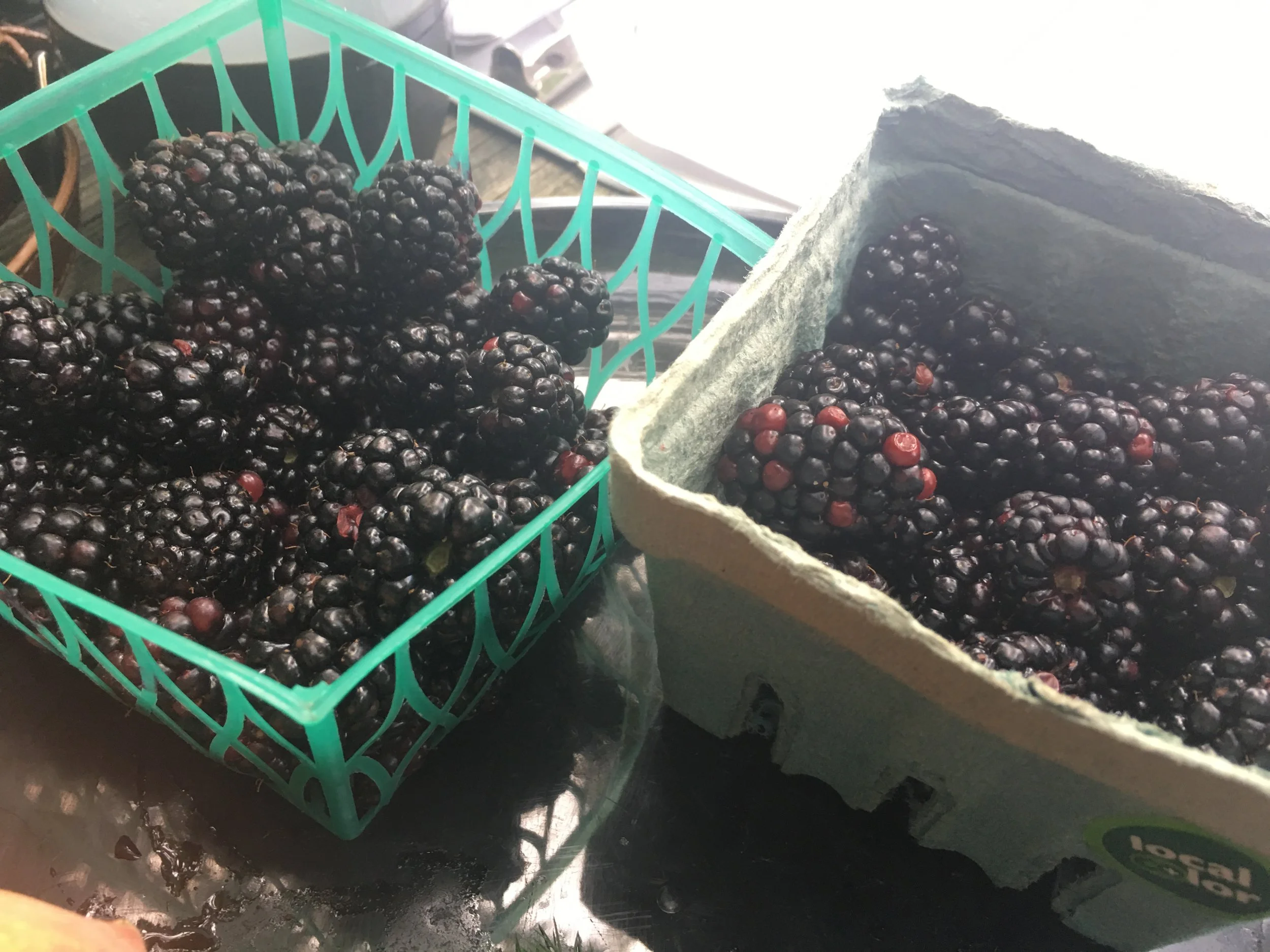field work
Megan Betz
When I was completing my Master's, I was applying to jobs at urban farms, from Utah to Massachusetts, looking for a way to get my hands in the soil & fully embody what it means to create an alternative food system. I wanted the early mornings. I wanted to be in the moment of change & progress. I wanted a break from school. But the financial realities of that life--farms unable to pay you enough to merit moving; months off; no prospects for my partner, who had just landed full-time work at a community college after years of adjuncting--made the idea impractical. I received an offer for funded PhD work, and I was thrilled. I could study food, stay involved in the food projects I'd come to love locally, and work toward our own land to be growing food on.
This is all to say, and it should surprise no one, that I was immensely naive about the act of farming. I was overly ambitious, believing my body (which overheats in temperatures others consider mild, leaving me physically ill & unable of moving, let alone laboring) could handle the work.
I have been involved with my field site, the Bloomington Community Orchard, for years, but this is the first summer where attendance at work & learn days, when their volunteers gather to do site maintenance, has been my top priority. This week, when temperatures hovered around 90 degrees Fahrenheit with oppressive humidity, I struggled to claw my way back out of the house & over to the Orchard. Within minutes, my body was tired. I was flailing & fading. My back ached, & the fabric of my shirt clung to it, heavy with sweat & humidity.
I've been sticking to the tasks I know--weeding in the shade of the trees, pruning fire blight from branches--but I've also enjoyed the back-stage work of the Operations Team, which coordinates work & learn days. As much as my time in the orchard has looked like this...
...it has also looked like this.
I've been taking these photos of diseases fruit, charred branches, & curled leaves home to sift through. I've volunteered to figure out what is attacking each sickly tree, how we safely remove it, & what may be causing it. I've come to a place where I'm comfortable removing fire blight from a tree. I can recognize the signs of apple maggot & coddling moth. And I am confident turning the the orchard's guide to pest management, kept in the shed.
I've taken on a more surgical approach to tree care, informed by the language of the orcharding guides. I check in on the trees I've pruned each week, watching the cut fold in on itself, pull into the tree like the Wicked Witch of the East's stocking feed roll under Dorothy's house. I watch as a tree that lost nearly 50% of its branches in poorly timed pruning (a rescue mission to save a pear from fire blight) continues to grow its remaining fruit. I can't help but dwell on (or, perhaps, in) the tension among this surgical language that creates distance, the care and tending I give and receive from these trees, and the power I feel in myself--to heal, to find strength in unexpected lightness--as I watch the tree heal.
I'll be taking this meditation on pruning, care, & connection to the Future of Food Studies conference, the 2nd annual meeting of the Graduate Association for Food Studies, in October. Join me, & share your thoughts.


